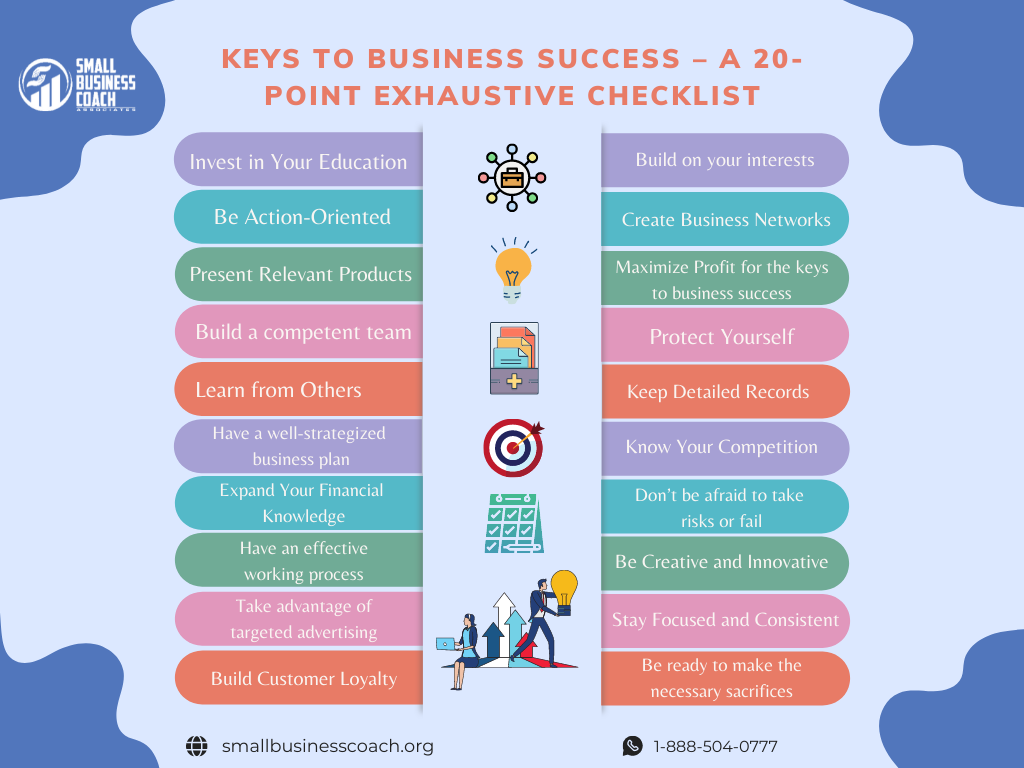Keys To Running A Successful Business

In an increasingly competitive and dynamic global market, understanding the core principles of successful business operations is more crucial than ever. Entrepreneurs and established companies alike are constantly seeking strategies to not only survive but thrive, innovate, and maintain a competitive edge. Industry experts emphasize the importance of a multifaceted approach, encompassing everything from robust financial management to a customer-centric focus.
This article delves into the key elements that contribute to running a thriving business. It explores the strategies and practices that can significantly impact a company's performance. The goal is to give the stakeholders and business owners key concepts to help their businesses succeed in today's dynamic market.
Financial Acumen: The Foundation of Success
A strong financial foundation is essential for any successful business. Effective financial management involves meticulous budgeting, forecasting, and cost control. According to a 2023 report by the Small Business Administration (SBA), businesses that actively monitor their cash flow are significantly more likely to remain solvent and achieve sustainable growth.
It also includes understanding key financial metrics such as profit margins, return on investment (ROI), and debt-to-equity ratio. Sound financial planning allows businesses to make informed decisions regarding investments, expansion, and resource allocation.
Customer-Centric Approach: Building Loyalty and Advocacy
In today's digital age, customer experience is paramount. Businesses that prioritize customer satisfaction often see improved retention rates and increased revenue. This customer-centric approach involves understanding customer needs, providing excellent service, and building lasting relationships.
Data from a 2024 Deloitte study indicates that companies with strong customer experience programs are 60% more profitable than those without. This includes personalized marketing, efficient customer support, and actively soliciting feedback for continuous improvement.
Strategic Marketing and Branding: Creating a Unique Identity
A well-defined marketing strategy and a strong brand identity are crucial for attracting and retaining customers. Effective marketing involves identifying target audiences, crafting compelling messaging, and utilizing the right channels to reach potential customers. Branding goes beyond just a logo; it encompasses the company's values, mission, and overall reputation.
Digital marketing, including search engine optimization (SEO), social media marketing, and email campaigns, has become increasingly important. A cohesive marketing strategy helps businesses stand out in a crowded marketplace and build trust with consumers.
Adaptability and Innovation: Staying Ahead of the Curve
The business landscape is constantly evolving, requiring businesses to be adaptable and embrace innovation. Companies must be willing to experiment with new technologies, processes, and business models to stay competitive. Innovation can involve developing new products or services, improving existing ones, or streamlining operations for increased efficiency.
According to a 2023 McKinsey report, companies that prioritize innovation are more likely to experience sustained growth and higher profitability. Adaptability also involves being responsive to changing market conditions and customer preferences.
Effective Leadership and Talent Management: Building a Strong Team
Strong leadership is essential for setting the vision and direction of the company. Effective leaders inspire and motivate their teams, fostering a culture of collaboration and accountability. Talent management involves attracting, developing, and retaining skilled employees.
Investing in employee training and development, providing opportunities for growth, and creating a positive work environment are crucial for building a strong and dedicated team. A skilled and motivated workforce is a key asset for any successful business.
Legal and Ethical Compliance: Maintaining Integrity
Adhering to legal and ethical standards is crucial for maintaining a positive reputation and building trust with stakeholders. Businesses must comply with all applicable laws and regulations, including labor laws, environmental regulations, and consumer protection laws. Ethical conduct involves acting with integrity and transparency in all business dealings.
A commitment to ethical behavior can enhance a company's brand image and attract customers who value social responsibility. Non-compliance can result in costly fines, lawsuits, and damage to the company's reputation.
Conclusion: A Holistic Approach to Success
Running a successful business requires a holistic approach that encompasses financial acumen, customer-centricity, strategic marketing, adaptability, effective leadership, and ethical compliance. While these elements are crucial individually, they are most effective when integrated into a cohesive strategy. Businesses that prioritize these principles are more likely to achieve sustainable growth, maintain a competitive edge, and build long-term success.
The journey of building a successful business is ongoing, requiring constant learning, adaptation, and a commitment to excellence. By focusing on these key areas, businesses can navigate the challenges and capitalize on the opportunities that arise in the ever-changing marketplace.


















